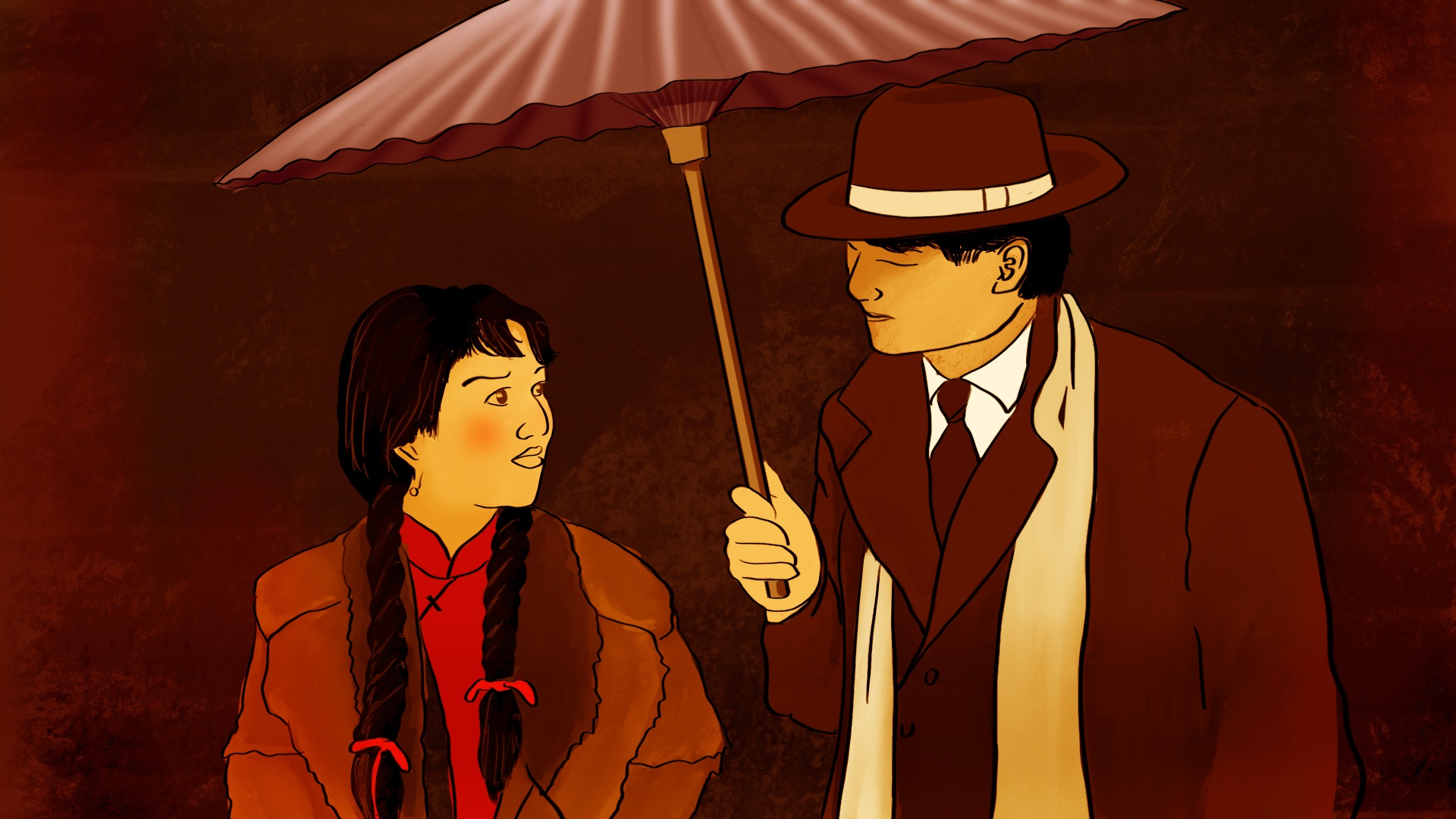‘The Bund’: The Hong Kong TV series that defined a generation
An iconic drama that harkens back to an era when mainland-Hong Kong relations were characterized by cultural intimacy.

A young woman walks down a narrow street in the gently falling snow, arm-in-arm with a man adorned in his signature white scarf, shielding the both of them with his umbrella.
A man sprints desperately up the hill toward the church where the wedding is being held, hoping that he is not too late. Out of breath, he finally stumbles into the hall, only to look up to find his former love at the altar about to marry someone else.
An entire Chinese generation would instantly recognize these scenes.
The Bund (上海滩 shànghǎi tān) was a 1980 television series produced by Hong Kong’s TVB during what is considered the golden age of Hong Kong television. It is probably best recognized by its titular theme song sung by Frances Yip (叶丽仪 Yè Lìyí), which became a Cantopop classic and remains one of the most recognizable Chinese-language songs of all time.
Dubbed Hong Kong’s answer to The Godfather, the series follows the journey of a former May Fourther, Xǔ Wénqiáng 许文强, who makes a fresh start in the mafia underworld of the International Settlement in 1920s Shanghai, played by a young Chow Yun-fat (周润发 Zhōu Rùnfā) in the role that catapulted him to stardom. As he rises through the ranks, Xu develops an unexpected relationship with Féng Chéngchéng 冯程程, played by Angie Chiu (赵雅芝 Zhào Yǎzhī), the daughter of a powerful crime boss.
In the early reform-and-opening era of the 1980s, as China reeled from the artistic dearth of the Cultural Revolution, where the only permitted forms of mass entertainment were the “eight revolutionary operas” (八个样板戏 bā gè yàngbǎn xì), popular culture was dominated by imports, and chief among them were the films, television series, and music from nearby Hong Kong and Taiwan. TV dominated, and when The Bund arrived on mainland screens in the mid-’80s, it became an instant classic. In the tapestry of 1980s pop culture, its tremendous popularity was rivaled perhaps only by the similarly era-defining 1983 TVB wuxia series The Legend of the Condor Heroes (射雕英雄传 shè diāo yīngxióng chuán). When these dramas came on air, city streets across China emptied as people assembled in front of their TVs.
Over 40 years later, the tragedies and triumphs of The Bund’s characters have lost none of their power. It remains fondly remembered for the timeless romance between the handsome Xu Wenqiang and the innocent and graceful Feng Chengcheng, made possible by the unforgettable chemistry between Chow Yun-fat and Angie Chiu. The duo’s momentary reunification after 40 years, captured in a photo circulated online last year, caused a sensation on social media as fans were gripped by a bout of nostalgia. Similarly, when the famous Taiwanese singer Fèi Yùqīng 费玉清 recently covered the drama’s theme in flawless Cantonese on a Chinese variety show, his performance went viral.
For contemporary viewers, The Bund offers a window into a bygone era. One of its key motifs is the latent patriotism of Xu Wenqiang as the disillusioned hero who reluctantly takes up the cause he vowed to put behind. As a graduate of the prestigious Yenching University at a time when university graduates remained an extreme rarity, he had been a passionate student demonstrator during the May Fourth Movement of 1919. Yet in the ensuing police crackdown, he was arrested and imprisoned, paying a heavy price for his patriotism. His idealism is eroded when he leaves prison, replaced by disillusionment. His decision to enter the mafia marks a shift in values, one toward living for himself rather than others.
Yet nevertheless, during the drama’s turning points, Xu’s sense of duty rises time and again to the surface. When he realizes his boss is doing business with Japanese spies seeking to infiltrate Shanghai, he makes the painful decision to sabotage his assignment and sell out the Japanese agents, resulting in his fall from grace and being forced to flee the city into exile.
Although The Bund isn’t a “patriotic” drama, and certainly nowhere comparable to the kind produced in China today, this subtle motif running through the story makes it in some ways more endearing and effective. It invokes a time when relations between Hong Kong and the mainland were different, when the warmth with which Hong Kong approached its Chinese identity — the show was a native Hong Kong production, with Hong Kong actors, directors, producers, etc. — was reflected in its cultural exports.
The Bund would inspire a dozen sequels, remakes, and adaptations both in Hong Kong and mainland China, but none came close to matching the popularity or cultural impact of the original. Its reputation as an all-time classic is well-deserved. Beyond the nostalgia associated with its two iconic leads that won hearts across the country, The Bund also represents something more abstract. It serves as a kind of zeitgeist, a cultural touchstone for a generation of Chinese, invoking memories of what seemed a simpler era.





